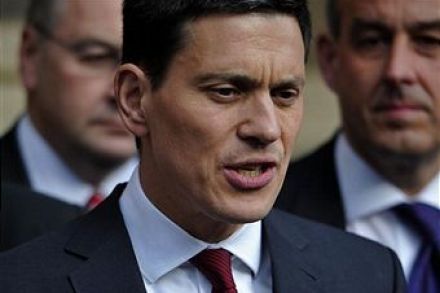The Labour leadership race descends into farce
Perhaps it’s just me but this morning’s Labour leadership machinations are a farce of political correctness. Everyone is falling over themselves to be as nice as possible and essentially rig the ballot so that Diane Abbott receives a nomination. As James notes, it’s a peculiar tactic as Abbott will cause no end of trouble for the ‘serious’ contenders for the ultimate prize. Needless to say, David Miliband, that auteur of absurdity, planted the banana skin. Attempting to be magnanimous but excelling in pomposity, he has voted for Abbot and urges all to do the same. My hunch is that there are many on the right of the party who will















